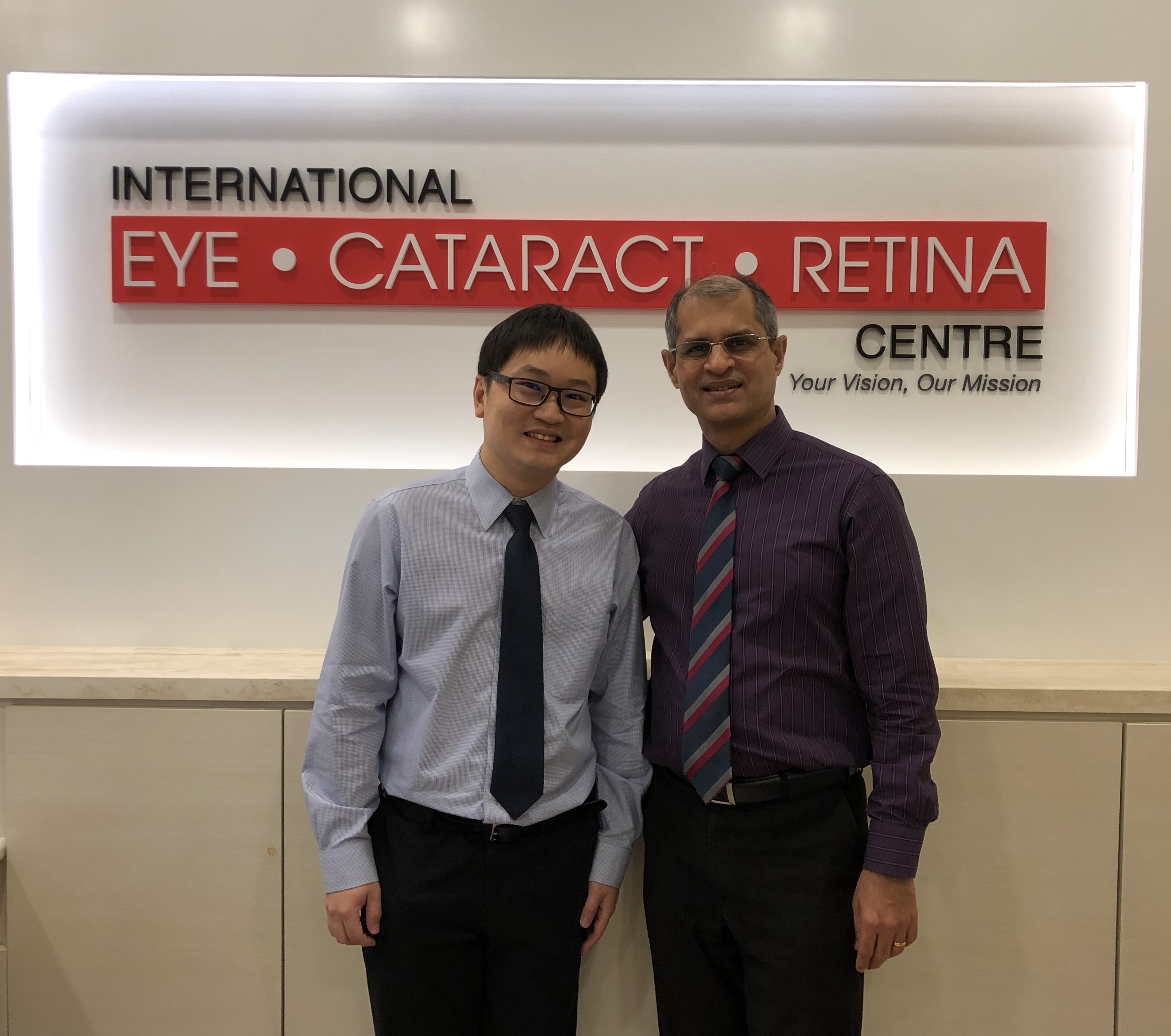By Yap Weiliang, BSc, chemistry graduate
I had the privilege to undergo a week-long attachment at International Eye Cataract Retina Centre where I had the opportunity to shadow Dr Ajeet Madhav Wagle, Medical Director and Senior Consultant Ophthalmologist at the centre, from 23-27 July 2018. As a “non-traditional student” looking to apply for a graduate entry level medical course, such attachment opportunities are limited, and I was very much looking forward to gain insights on the work of healthcare professionals in a clinical setting.
My first insight from the attachment was the importance of teamwork in the daily operations of the clinic. When a patient comes into the clinic, the optometrist first performs a series of investigations, either based on a standard protocol for new visits or a set of tests ordered by the doctor for the follow-up visits. These procedures range from basic history taking, visual acuity testing, measuring of intraocular pressure with an air-puff tonometer, taking retinal photographs and performing cross-sectional scans of the retina using the optical coherence tomography (OCT) machine. Although these tests may seem mundane and trivial to people who are not in the know, the results obtained actually provide important information to allow the eye specialists (ophthalmologists) to subsequently elicit the correct diagnosis and to monitor response to treatment. The work of the optometrists also helps ensure a smooth flow for the clinic, which translates to patients being seen more quickly and efficiently by the doctors.
Observing the consultation sessions Dr Ajeet had with his patients was also an invaluable learning experience. Dr Ajeet was always very systematic in his eye examinations using the slit-lamp biomicroscope, and was methodical in finding out more about the medical history of his patients to ensure an accurate diagnosis. He was also very patient in explaining the conditions and treatment options to his patients, sometimes with the use of simple analogies to allow them to better understand complex medical terminologies and disease processes. Most importantly, Dr Ajeet always respected the decisions made by the patients, which is a good reminder for me that patient autonomy is an important principle of medical ethics. I could see the strong doctor-patient relationship that Dr Ajeet has established with his patients, as his patients really trusted him and his recommendations for treatment. This has definitely inspired me to strive to achieve such ideal relationships with my patients in the future.
The highlight of my attachment was definitely being able to observe Dr Ajeet perform an eye surgery. The operation was done for an epiretinal membrane (ERM) which is a delicate layer of tissue that has grown abnormally over the most sensitive central portion of the retina (macula) in the patient. ERMs can eventually cause vision problems for some individuals. This was my first time being in an actual operating theatre and I was pleasantly surprised by how the healthcare professionals – the surgeon, anaesthesiologist and the nurses – worked so well as a team. Everyone knew what to do and performed their roles effectively and efficiently. I was also very impressed with how amazing Dr Ajeet was with his hands, as the procedure required delicate handling of surgical instruments and eye tissues during the retinal surgery.
To sum it up, my attachment at International Eye Cataract Retina Centre was an eye-opening (pun intended =D) experience. It has reaffirmed my interest in pursuing medicine and working in the healthcare industry. I would like to thank Dr Ajeet for giving me such an invaluable learning opportunity and for being so patient in sharing with me his knowledge, be it medical knowledge or the art of practice of medicine. Special thanks also go to optometrist Mr Chong Wee Hou for helping to arrange the attachment, and the team of optometrists at both the Mount Elizabeth Medical Centre branch and Farrer Park Medical Centre branch for being so willing to share about their work.




